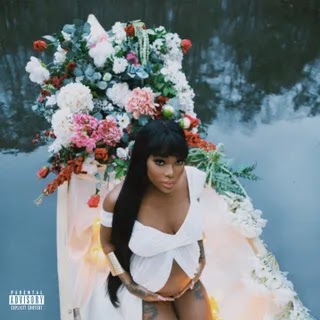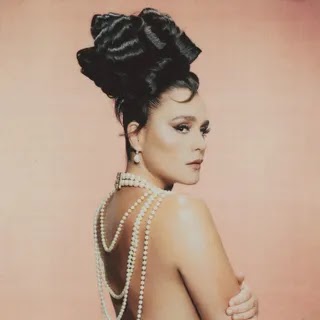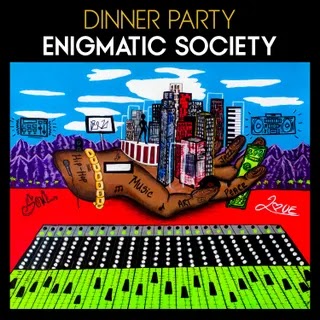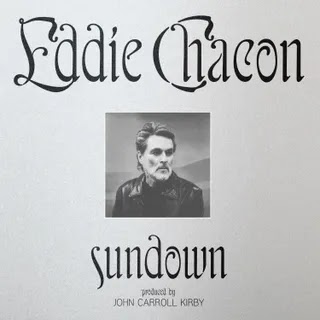Abel Tesfaye finally delivers on his long-running vision, leveraging a self-loathing villain into an irresistible, cinematic narrative with his most satisfying collision of new wave, dream pop, and R&B.
The Weeknd’s latest short film opens with the Toronto singer grinning maniacally onstage. He’s just finished a performance on Jimmy Kimmel Live! and blood crawls down the side of his bandaged nose, threatening to drip onto his suit. As the audience cheers, Abel Tesfaye walks backstage, his artificial smile intact, until he reaches a hallway where it fades into a frigid stare.
The character he plays is an exaggerated riff on the solipsistic-hedonist persona Tesfaye has been tunneling into since his 2011 mixtape trilogy, where he first introduced listeners to his brand of brooding nihilism. In 2020, he continues to revel in high drama; After Hours dives deep into the textures of pleasure, despair, and how we consciously distance ourselves from our interiors.
After years of attempting to bring the spectral tones of his early mixtapes to a mainstream pop format, Tesfaye finally unites his two worlds. His major-label debut Kiss Land was a languid disappointment, and Beauty Behind the Madness failed to live up to the promise made by the Trilogy tapes. After Hours delivers on the most compelling aspects of Tesfaye’s vision; leveraging a self-loathing villain into an irresistible, cinematic narrative with his most satisfying collision of new wave, dream pop, and R&B.
Even if he is singing about the same things—bacchanalian excess, loneliness as rapture, using women to rehabilitate his poor little life—the fresh vocals and production flourishes do the trick. On “Too Late,” his longtime producer Illangelo (alongside Lizzo producer Ricky Reed and DaHeala) mutate UK garage’s syncopated kicks and pitch-shifted echoes, drawing on the spirit of My Dear Melancholy,’s “Wasted Times.” “Hardest to Love” couples a sharp jungle break with Tesfaye’s longing whispers about remorse and a troubled partnership. Oneohtrix Point Never and Tame Impala’s Kevin Parker also lend production on “Repeat After Me (Interlude)” a collage of psychedelic wooshes and Vocoder dubs, while the ghostly eulogy “Until I Bleed Out” uses liturgical synth arpeggios reminiscent of “Boring Angel” from OPN’s R Plus Seven.
There’s always been a cinematic flair to Tesfaye’s music, as if he’s been chasing after his own Purple Rain moment—for now, he’ll have to settle for a cameo in the Safdie Brothers’ 2019 thriller Uncut Gems. He draws on synth-pop nostalgia to mirror the tragic glitz of ’80s Hollywood: “In Your Eyes” includes an arena-sized cheeseball sax solo, while the plinking synths and slick hand-claps of “Save Your Tears” evoke a long-lost Wham! track. Tesfaye can lean a little too hard on these Reagan-era signifiers, but his bleeding-heart melodies and donating an unforgettable hook to the synth player on “Blinding Lights” remind us why we keep listening in the first place.
Like any good villain, Tesfaye is aware of the character he plays, dropping tongue-in-cheek one-liners like “Futuristic sex, give her Philip K. Dick” on “Snowchild.” Meanwhile, “Faith” cranks the gloomy dial up to 11, summoning a death drive reminiscent of the double-decker bus from The Smiths’ “There Is A Light That Never Goes Out.” “But if I OD, I want you to OD right beside me,” he sings. “I want you to follow right behind me.”
Despite all these textbook Weekndisms, Tesfaye wants us to know he’s struggling to reconcile the sinner he once was with the man he’s trying to become. He may not be the dysfunctional addict of the Trilogy years, but he’s also not willing to be the partner a woman might need him to be. What more can you expect out of pop music’s antihero? There is not a single song on the album that colors outside the lines he established nine years ago, but his narrow focus has paid off: He’s finally found harmony between the enigmatic noir-pop that broke him to the blogs and the arena-worthy ambition that launched him into the mainstream. It’s hard to tell where the universe of listeners fixated on filling spiritual voids through sex, drugs, and romance ends and the universe of the Weeknd’s tortured, empty melancholy and drunken, devastating love begins. That’s the beautiful blur of After Hours.
View the original article here
















0 comments:
Post a Comment